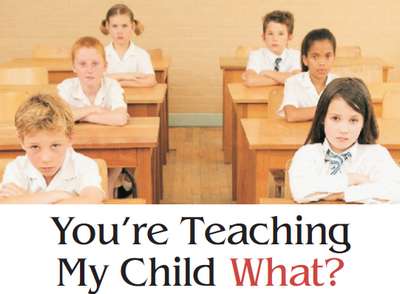Family Planning’s ‘Sexuality Road’ – What every parent should be aware of
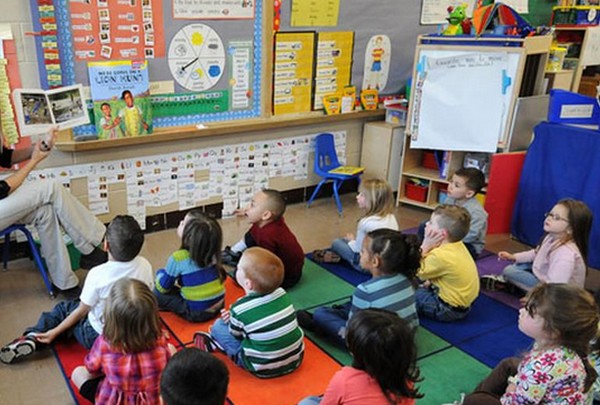 UPDATED SUMMARY: Family Planning wants to see their Sexuality Road programme in primary and intermediate schools.
UPDATED SUMMARY: Family Planning wants to see their Sexuality Road programme in primary and intermediate schools.
But we believe parents should be fully aware of the material being covered so they can choose to withdraw their children from the presentations if they wish to (which is their legal right!).
Most schools along with the parents in the school community will also rightly reject the extreme elements of the new sexuality education guidelines released last year by the Ministry of Education. Resources should be targeted at parents to help them educate their own children. Primary school children as young as 5 will be indoctrinated with issues around ‘gender stereotypes and norms’ and ‘gender, sexuality and diversity’. But most children that age simply want to play, eat and have fun. We should let children be children
Below are examples from the Sexuality Road programme being pushed by Family Planning for year 1, year 5, and year 8.
WARNING – SOME CONTENT WILL OFFEND
YEAR 1 PROGRAMME – 5 year olds!
These are some of the resources for Year 1 lesson 7 “My Body” That’s right – 5-year-olds talking about “vagina” “vulva” “penis” “scrotum” “testicles” (why did they miss out “anus”?) – but even learning all the Maori translations as well for when they visit the Marae. There’s even a Maori-body-parts-song in the course outline. Will it have a 2nd verse with the above words?
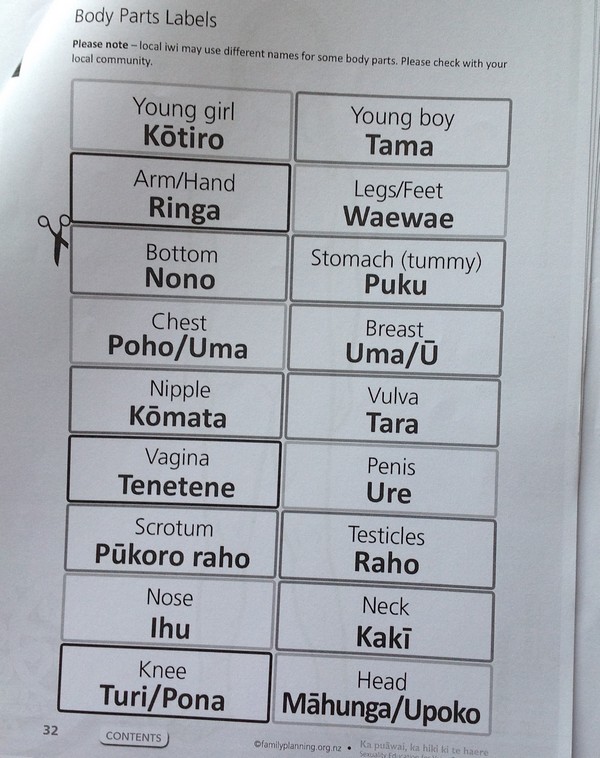
Note the very important instruction to the teacher on the guideline below
“It is important to use the term vulva, rather than vagina, when describing the female body parts that are on the outside of the body. If students…”
(remember – 5-year-olds)
“…use the term ‘vagina’, simply state girls do have vaginas but the vagina is inside the body we cannot see it. The area of the girl’s body, where the vagina goes in, is called the vulva.”
(Does little Johnny need to and want to even know this???)
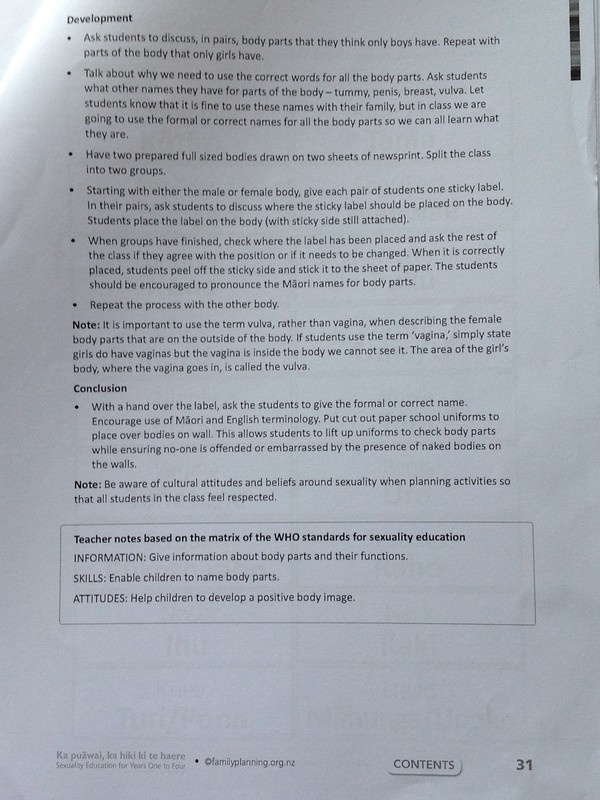
“Talk about why we need to use the correct words for all the body parts…..”
Um, why?
“Ask students what other names they have for parts of the body… Let students (5-year-olds) know that it is fine to use these names with their family, but in class we are going to use the formal or correct names for all the body parts so we can all learn what they are.”
 And parents can just get stuffed.
And parents can just get stuffed.
Here’s the weird bit
“Put cut out paper school uniforms to place over bodies on wall. This allows students to lift up uniforms to check body parts while ensuring no-one is offended or embarrassed by the presence of naked bodies on the walls.”
Ya think?
YEAR 5 PROGRAMME – 9 year olds
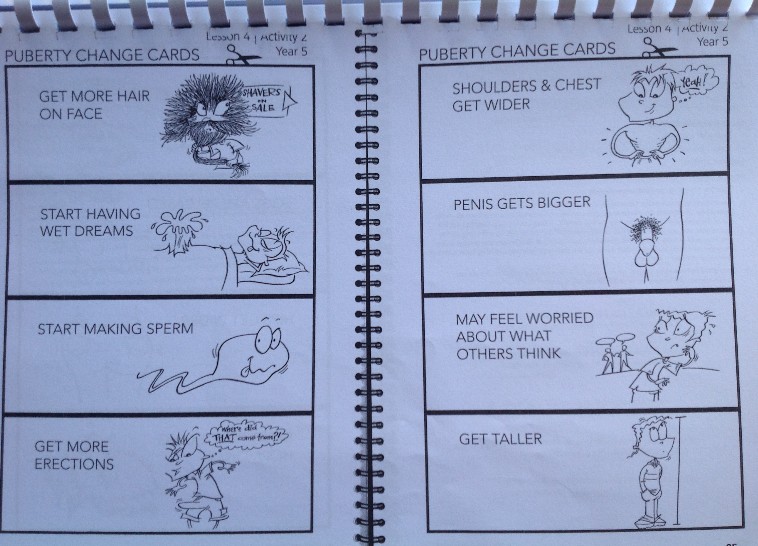
Note scenario 1 & 2 below – why does a nine year old need to tackle this issue in a classroom (including with children of the opposite sex) rather than with their parents?
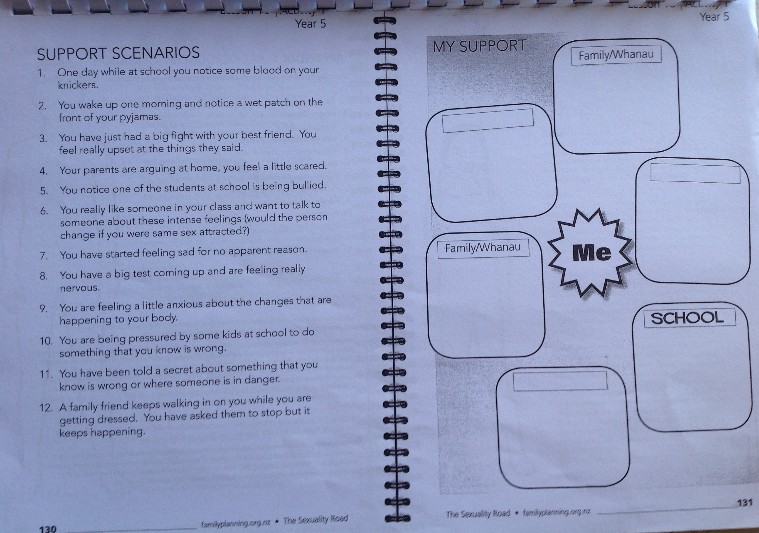
The worksheet below has exercises and questions on “Sexuality” “Periods” Sperm” “wet dreams” “erections” – Don’t year 5 children just want to play!
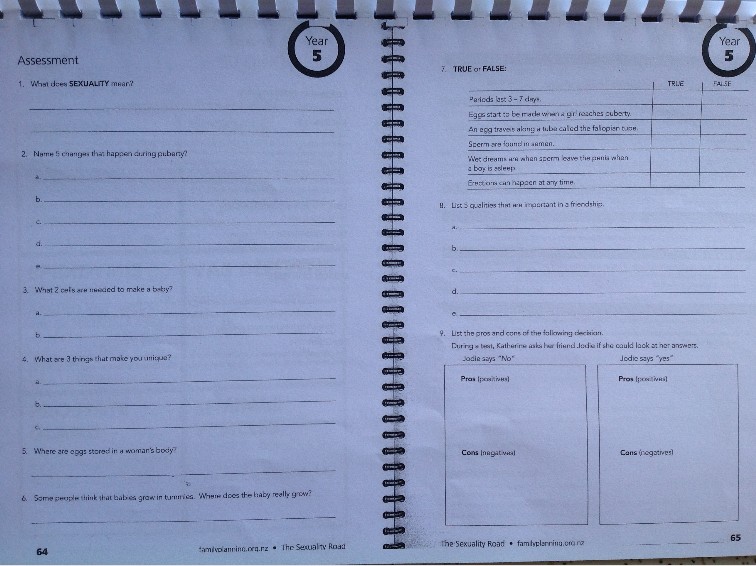
This is year 9 science or year 11 biology at least! Not year 5.
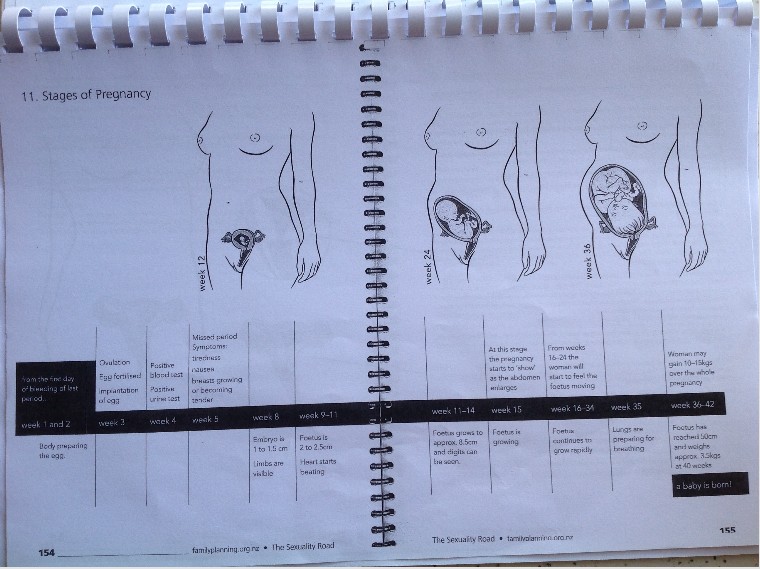
And finally –
YEAR 8 PROGRAMME – 12 year olds
* This is one of the worksheets for the intermediate students to work through together in the classroom.
Most women when they have their periods bleed for 14 days True/False
A wet dream only happens if the boy doesn’t go to the toilet before bed True/False
Vaginal discharges are normal True/False
It’s normal for males / females to masturbate True/False
Females can lose tampons in their body if they are not careful True/False
The size of a guy’s penis shows how mature he is True/False
* “Clarify that having no sexual contact is safest, but if sexually active (year 8!!), condoms provide the ‘best’ protection.”
* Periods – pads and tampons, what do to with pads (mixed classes!)
* Mix ‘N Match Card games with images that link to statements such as ‘Pubic hair grows around genitals’, ‘spontaneous erections’, ‘wet dreams’; (see below)
* Dear Ms Q Questions: “The sexuality teacher told us that girls have a sexual organ called a ‘clitoris’. I’m curious to touch mine, but would that be naughty?”

SUMMARY
 What we have unearthed in our research is only the ‘tip of the iceberg’.
What we have unearthed in our research is only the ‘tip of the iceberg’.
As we have previously highlighted, there have been other disturbing number of examples reported in the media, including a mixed class of boys and girls who were asked by the AIDS Foundation if they had masturbated lately and were given condoms and strawberry-flavoured lubricant. They were also given a leaflet featuring graphic pictures, terms including “co*k” and “wa*k”, and advice on the best condoms.
Reports in 2011 revealed that children as young as 12 are being taught about oral sex and told it’s acceptable to play with a girl’s private parts as long as “she’s okay with it”. In other cases, 14-year-old girls are being taught how to put condoms on plastic penises, and one female teacher imitated the noises she made during orgasm to her class of 15-year-olds.
One concerned father took his 12-year-old son out of a sex education class at his all-boy school after he came home upset about what had happened during one of the lessons. It included a question-and-answer session that focused on, “I have learned that my girlfriend has a thing called a clitoris. I really want to play with it. Is that okay?” The answer was: “Yes, if you ask her and she’s okay with it.”
Parents should be horrified at the prospect of groups like Family Planning undermining the role and values of parents with resources which fail to take into account the emotional and physical development of each child and the values of the family.
Parents know their children the best and should determine the best timing and most appropriate way to tackle topics such as keeping themselves safe and ‘where do babies come from.” A valueless ‘one size fits all’ approach is far too simplistic and can even be harmful.
Studies show that the biggest protective factors for coping with puberty and sexual involvement are married parents, family values, parental supervision, and parental expectations for behaviour. What happens at home is the greatest determinant of the outcomes for the young person.
Schools have become ‘one-stop shops’ for raising our children and dealing with every social issue. It’s time we empowered parents to fulfill this important role of preparing their own children. Parents can feel overawed by this issue and the need for ‘the sex talk’ so resources should be put into giving them the confidence to educate their children.
 Family First released a report in 2013 “R18: Sexuality Education in New Zealand – A Critical Review” by US psychiatrist Dr Miriam Grossman which was sent to all school principals and all Board of Trustee Chairpersons of Intermediate and Secondary schools in NZ. Dr Grossman warned that the sex education resources fail to tell the full facts and compromise the concerns and wishes of parents, and the safety of young people.
Family First released a report in 2013 “R18: Sexuality Education in New Zealand – A Critical Review” by US psychiatrist Dr Miriam Grossman which was sent to all school principals and all Board of Trustee Chairpersons of Intermediate and Secondary schools in NZ. Dr Grossman warned that the sex education resources fail to tell the full facts and compromise the concerns and wishes of parents, and the safety of young people.
“A premise of modern sex education is that young people have the right to make their own decisions about sexual activity, and no judging is allowed. Risky behaviours are normalised and even celebrated. Children and adolescents are introduced to sexual activities their parents would prefer they not even know about, let alone practice. It’s reasonable to ask: is the ‘comprehensive sexuality education’ foisted on young people all over the world about sexual health, or sexual licence?” says Dr Grossman.
There seems to be a basic – and ironic – assumption that parents know nothing about sex and that only Family Planning and teachers do.
This is a myth and should be rejected by both parents and politicians who fund these groups.
Please take the time to find out what approach your school is using regarding this important issue. We want to help you make an informed decision which is in the best interests of your children.
 Kind regards
Kind regards

Bob McCoskrie
National Director
